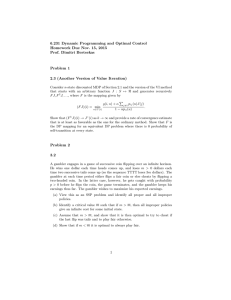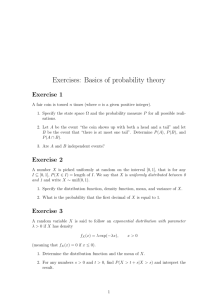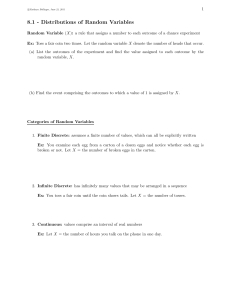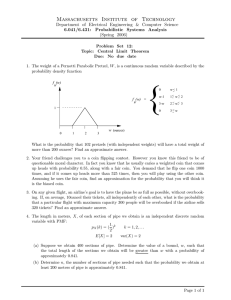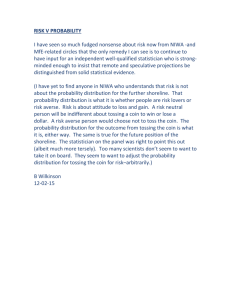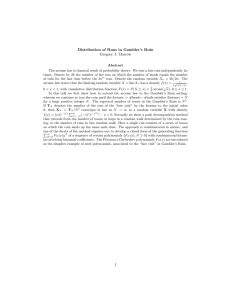The Gambler`s fallacy
advertisement
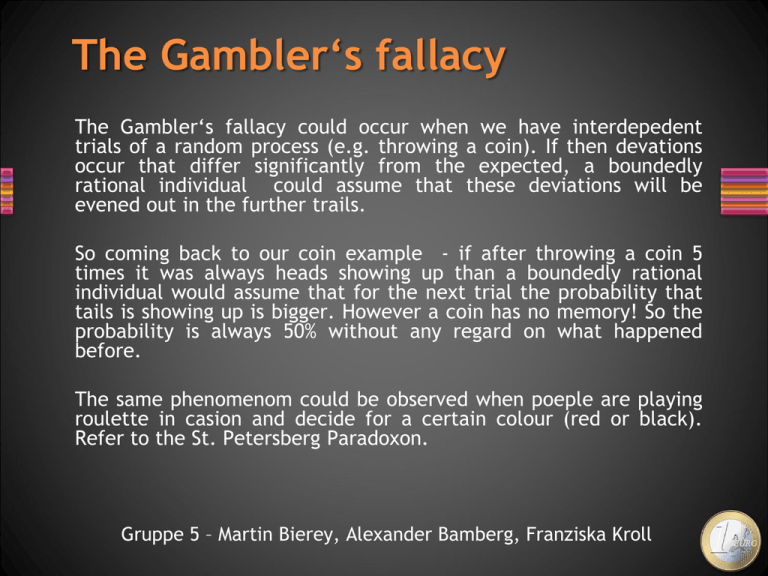
The Gambler‘s fallacy The Gambler‘s fallacy could occur when we have interdepedent trials of a random process (e.g. throwing a coin). If then devations occur that differ significantly from the expected, a boundedly rational individual could assume that these deviations will be evened out in the further trails. So coming back to our coin example - if after throwing a coin 5 times it was always heads showing up than a boundedly rational individual would assume that for the next trial the probability that tails is showing up is bigger. However a coin has no memory! So the probability is always 50% without any regard on what happened before. The same phenomenom could be observed when poeple are playing roulette in casion and decide for a certain colour (red or black). Refer to the St. Petersberg Paradoxon. Gruppe 5 – Martin Bierey, Alexander Bamberg, Franziska Kroll
